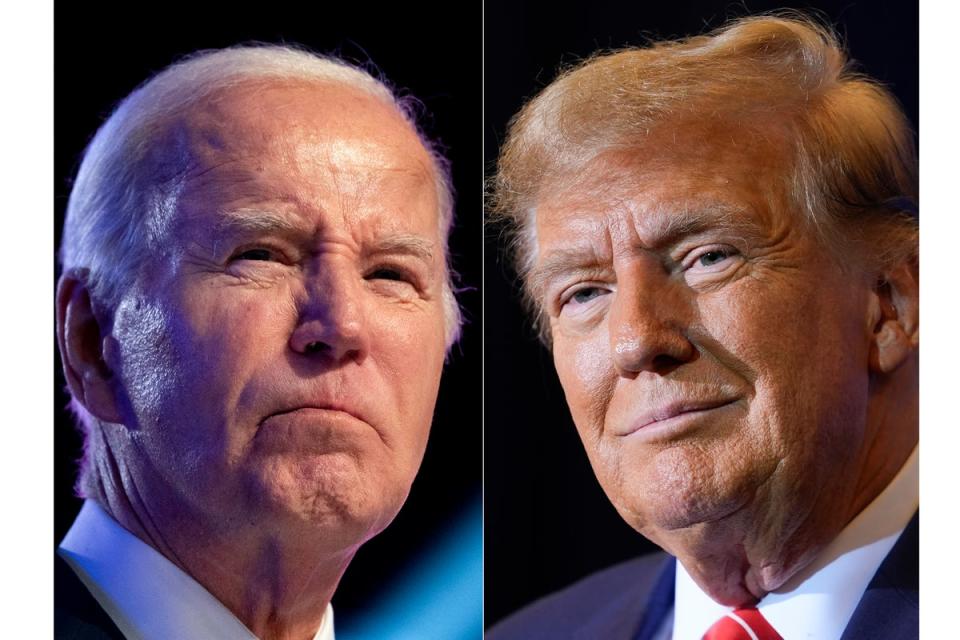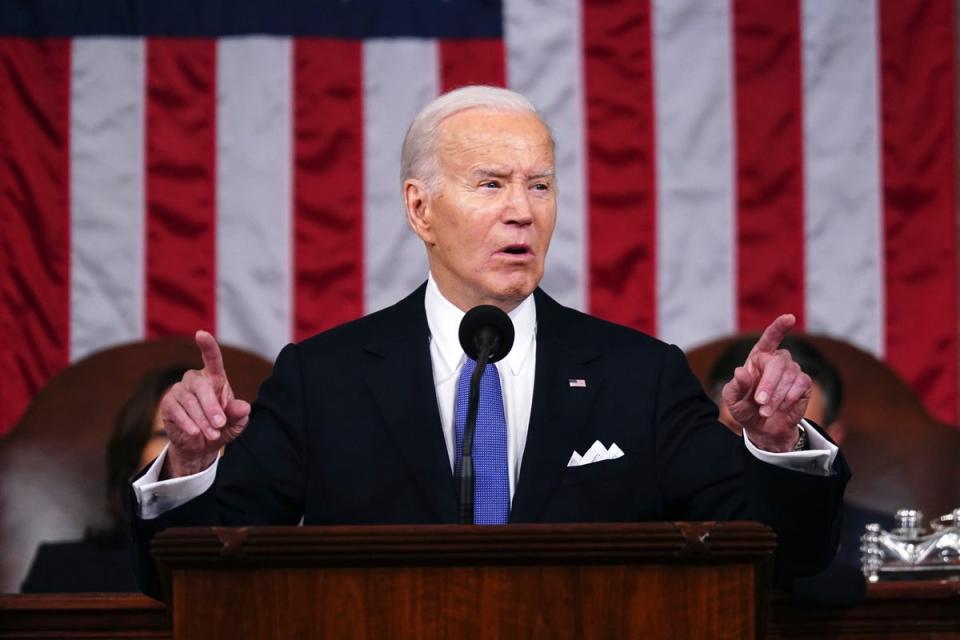Joe Biden wins Democratic nomination for President after Georgia primary victory
Joe Biden has clinched the Democratic nomination for president, after sweeping primaries in Georgia, Mississippi and Washington on Tuesday night.
The president easily won the primary in the Peach State early evening, taking him past the 1,968 delegate threshold necessary to secure the party’s nomination. Mr Biden then sailed to victory in Mississippi and Washington primaries soon after.
He will be officially recognised at the Democratic National Convention in Chicago this August.
The president celebrated his victory in a video on X, where he described the day as a “call to action”.
“Are you ready? Are you ready to defend democracy? Are you ready to protect our freedom? Are you ready to win this election?” he says in a voiceover in the video.
Now, the stage has now been officially set for a 2020 rematch this November, with Donald Trump following in Mr Biden’s footsteps and securing the Republican nomination hours later.
The former president won Republican primaries in Georgia, Mississippi and Washington and the Republican caucuses in Hawaii on Tuesday night, taking him over the threshold of 1,215 delegates needed.
Mr Trump meanwhile took to Truth Social to call it “my great honor” to represent his party before lashing out at “the Worst, Most Incompetent, Corrupt, and Destructive President in the History of the United States”.
Mr Trump’s only significant competition in the Republican race had come from former UN ambassador Nikki Haley, who ultimately dropped out of the race for the GOP nomination earlier this month, following major defeats on Super Tuesday.
Mr Biden, who mounted his first bid for president 37 years ago, did not face any serious Democratic challengers to his run for reelection at age 81. That was despite facing low approval ratings and a lack of voter enthusiasm for his presidency — driven in part by his age.

Just 38 per cent of US adults approve of how Mr Biden is handling his job as president while 61 per cent disapprove, according to a recent survey by The Associated Press-NORC Center for Public Affairs Research.
Already the oldest-ever American president, Mr Biden would be 86 if he served out the entirety of a second term. Regardless of the November outcome, he or Mr Trump would be the oldest leader ever sworn in on Inauguration Day 2025.
63 per cent say they’re not very or not at all confident in Mr Biden’s mental capability to serve effectively as president, while 57 per cent said the same of Mr Trump.
Just hours before clinching the nomination, the president was the subject of hours of testimony from a special counsel who investigated his mishandling of classified documents and determined that he couldn’t prosecute the president in part because he was too forgetful. The prosecutor, Robert Hur, characterized Biden in his report as someone who presented as “a sympathetic, well-meaning, elderly man with a poor memory.”
In both his State of the Union speech and a new campaign ad, Mr Biden emphasised the value of experience and mixed in a dose of humour. He told Congress last week: “I know I may not look like it, but I’ve been around a while. When you get to be my age, certain things become clearer than ever.”
The Biden campaign’s strategy has been to constantly highlight Mr Trump’s perceived shortcomings, while the former president’s has been in keeping with his brutal and personal style of attacking political opponents.

Mr Biden has tried to frame the race as a battle for freedom, both at home and abroad, contrasting his support for Ukraine and work to expand NATO with Mr Trump’s praise for Russian President Vladimir Putin and his suggestion that he would tell Russia to attack NATO allies he considers delinquent.
His allies are also optimistic that a protest vote campaign over Israel’s war with Hamas – seen through the entering of “uncommitted” ballots by voters in some states – will subside by November.
The campaign hopes that by then, liberals and people of colour angry about the more than 30,000 people killed in Israel’s offensive after the October 7 attacks will be forced to choose between him and Trump.
In 2012, then-President Barack Obama also saw a number of “uncommitted” delegates emerge from uncontested primaries, particularly in conservative states.

 Yahoo News
Yahoo News 
